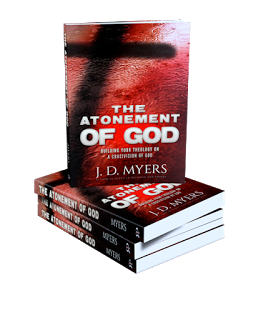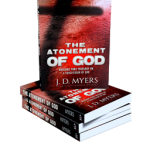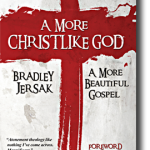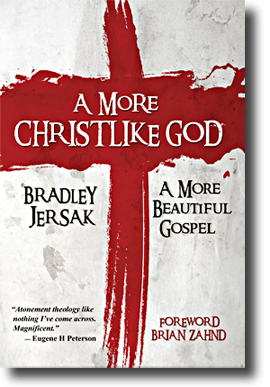I have sent my next book to the printers… The book is called The Atonement of God, and is now available for pre-order at Amazon.
And I am SO excited, because I believe this is my best book yet.
If you have been following my blog for a while, you know that I have been struggling with the violence of God in the Bible. About 5 years ago, I thought I had a solution to this problem, and started writing a book to present it. I wrote 200,000 words before giving up.
 But in the process, I developed a different solution. I am not quite ready to publish a book on THAT solution, but this book which is now available for pre-order from Amazon contains a large part of the solution. This book forms the foundation for that future book.
But in the process, I developed a different solution. I am not quite ready to publish a book on THAT solution, but this book which is now available for pre-order from Amazon contains a large part of the solution. This book forms the foundation for that future book.
If you sort of read between the lines of the book, my solution to the problem of the violence of God in the Bible is in this book, but it is not really stated explicitly.
Instead, this book really just presents Jesus as the solution to it all, and shows how a proper understanding of the crucifixion of Jesus helps sort out a lot of other areas of theology as well.
The book ships on March 21, so order your copy today!







 One of the key sections of A More Christlike God is where Brad Jersak discusses the all-important issue of “the wrath of God.” This idea is found in numerous places in the Bible, and is one of the key issues in this debate about what God is like. Many people assume that the phrase “the wrath of God” indicates that God is angry at us. Jersak presents a compelling case for why this is not a proper understanding of that term. He rightly critiques the idea that “the wrath of God” is God withdrawing His mercy. God never withdraws His mercy. God’s mercy is unfailing and everlasting. His mercy endures forever (Psalm 136).
One of the key sections of A More Christlike God is where Brad Jersak discusses the all-important issue of “the wrath of God.” This idea is found in numerous places in the Bible, and is one of the key issues in this debate about what God is like. Many people assume that the phrase “the wrath of God” indicates that God is angry at us. Jersak presents a compelling case for why this is not a proper understanding of that term. He rightly critiques the idea that “the wrath of God” is God withdrawing His mercy. God never withdraws His mercy. God’s mercy is unfailing and everlasting. His mercy endures forever (Psalm 136).

 Furthermore, people say that God had to pour out His wrath against sin upon somebody (either us or Jesus) in order to satisfy his justice. Yet then we say that God did this out of His mercy.
Furthermore, people say that God had to pour out His wrath against sin upon somebody (either us or Jesus) in order to satisfy his justice. Yet then we say that God did this out of His mercy.  When the Pentateuch is understood in its entirety, it appears that the message of the Pentateuch is that God was never angry at people and never wanted sacrifices and offerings, but wanted instead a people for Himself who lived by faith in God and with justice and mercy before a watching world. See
When the Pentateuch is understood in its entirety, it appears that the message of the Pentateuch is that God was never angry at people and never wanted sacrifices and offerings, but wanted instead a people for Himself who lived by faith in God and with justice and mercy before a watching world. See 


 Third, I am not a fan of the Penal Substitutionary theory of the atonement. I am a proponent of the Christus Victor view. Ryken’s book is overflowing with imagery, language, and themes from the Penal Substutionary view, and in my opinion, this perspective damages our view of God and what Jesus actually accomplished on the cross. This topic is so large, I cannot say anything else about it here.
Third, I am not a fan of the Penal Substitutionary theory of the atonement. I am a proponent of the Christus Victor view. Ryken’s book is overflowing with imagery, language, and themes from the Penal Substutionary view, and in my opinion, this perspective damages our view of God and what Jesus actually accomplished on the cross. This topic is so large, I cannot say anything else about it here. 